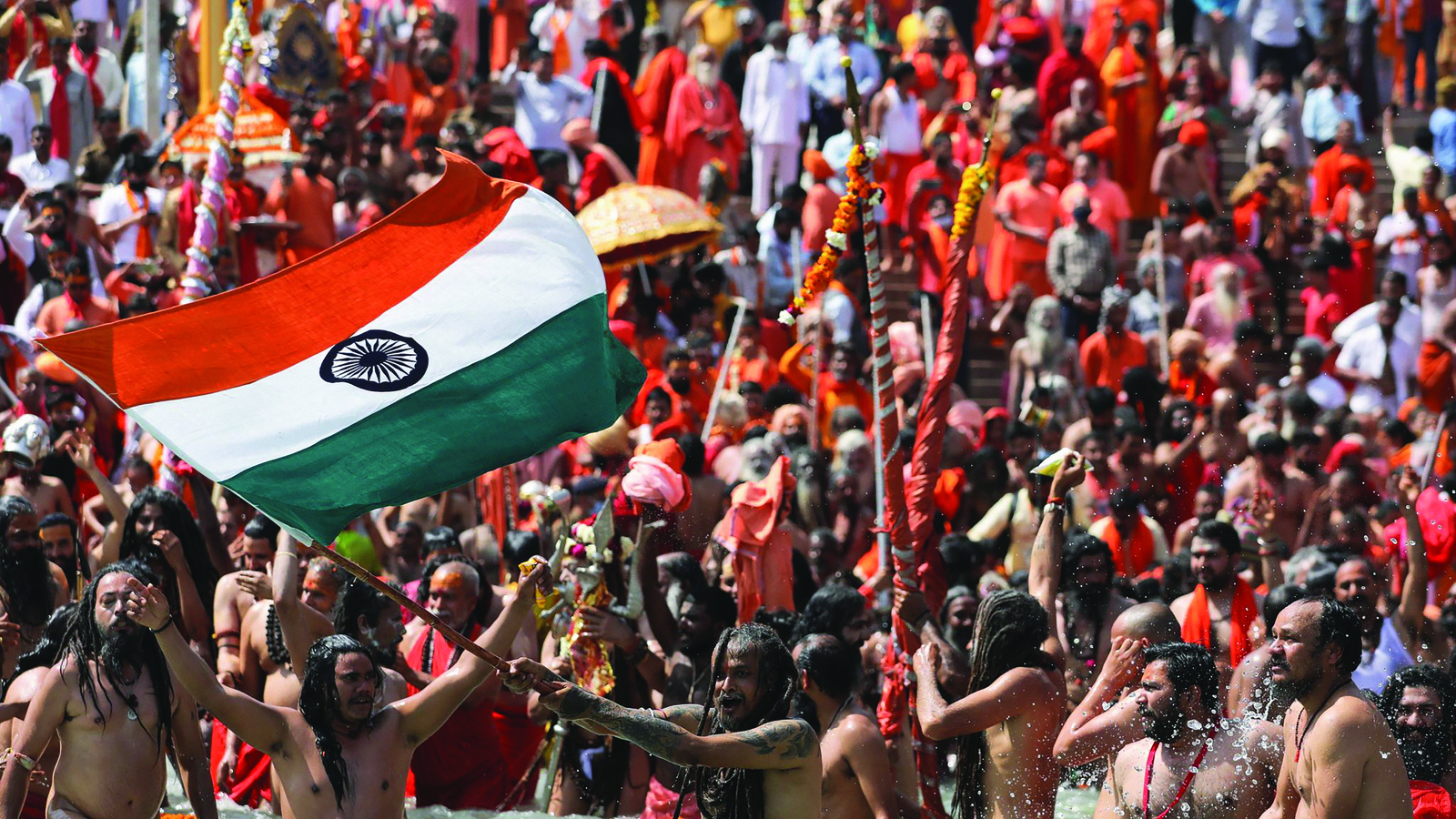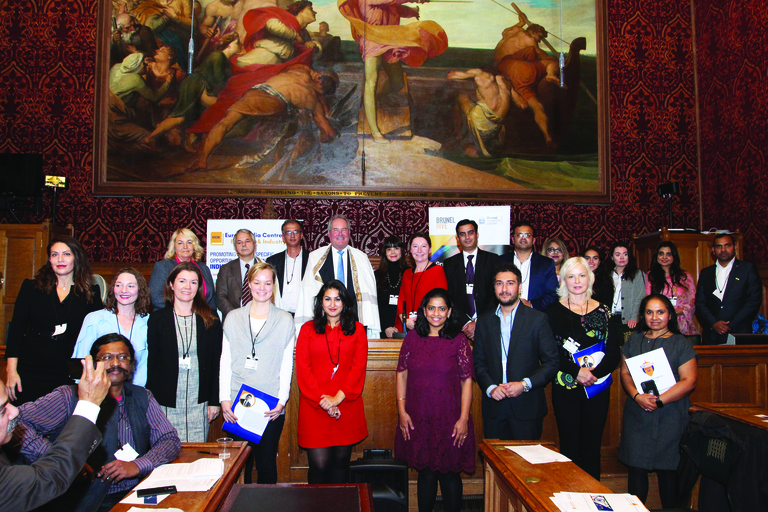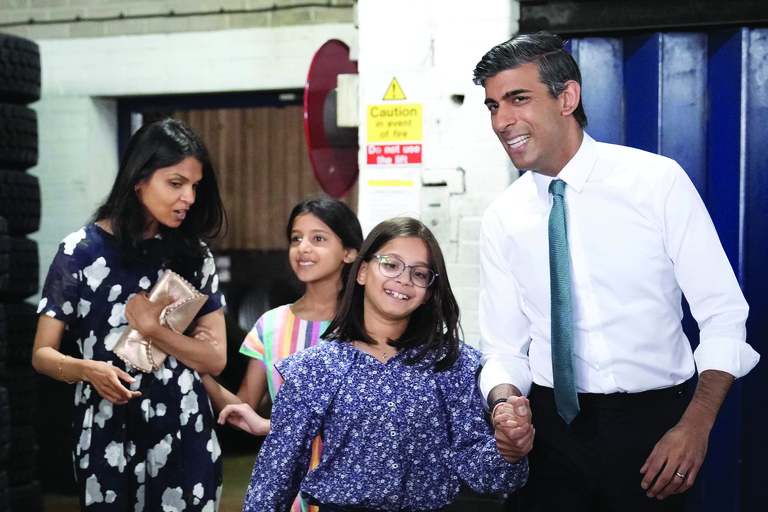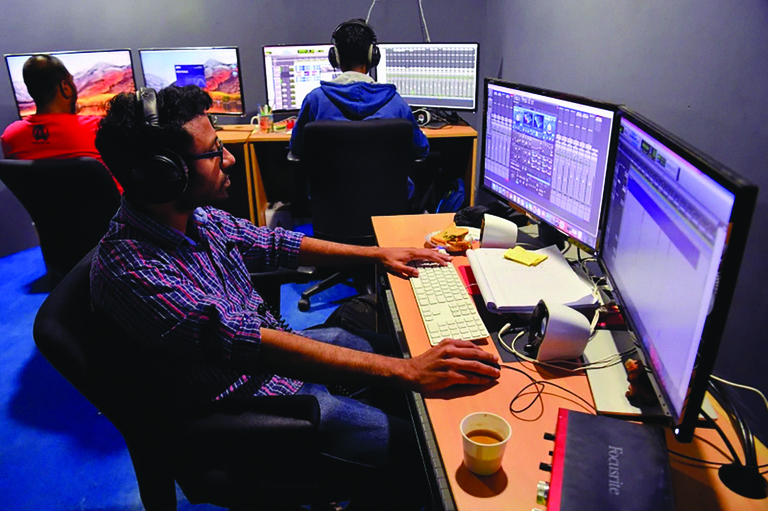
Jewel of the World: Can the newly crowned most populous country finally become a global superpower?
According to the UN, the teeming, colourful expanse of India is now home to more people than any other country on Earth. Could this herald its breakthrough as a top-tier nation with global clout?
“I do feel a sense of pride because of the fact that India is the most populated country, but I cannot explain why,” says Gia Karamchandani, an Indian student at the Hong Kong University of Science and Technology. “I think it is because it makes me feel like there are many people that I can connect to on a cultural level.”
India’s vast mass of people of different ethnicities and religions has long been a source of strength as well as a potential weakness. During the time when India was known as the ‘Jewel in the Crown’ of the British Empire, its pool of manpower was considered essential to help run and police a global empire.

Superpower Revival
Some academics now view India during that time as an Asian superpower within the structures of the British Empire, so perhaps talk of the country now becoming a superpower is just a return to the status quo. Go back even further, circa 1700, and it was certainly an economic might, accounting for a fifth of the global economy.
“I wish India could return to its former glory,” says Aditi Jhaveri, Senior Lecturer at the Hong Kong University of Science and Technology. “Despite being one of the oldest civilisations in the world, we haven’t been able to convey how modern, cultured, developed and scientifically and economically advanced we were before colonisation.”
And yet, India’s modern relationship with Britain is revealing. People of Indian ethnicity number about 1.4 million in the UK and are high achievers with some of the greatest levels of education and proportion of professionals. The ascent of Indian-origin Rishi Sunak to the British premiership was met with glee in India and by Indians the world over. “It also stoked the nationalistic sentiments of many Indians who really want to believe that the future can be ours,” says Jhaveri.
In deference to diplomatic niceties between the UK and India, the magnificent Koh-i-Noor diamond, in British hands since 1849 when the 10-year-old Maharajah of Punjab was compelled to hand it over to Queen Victoria, remained firmly locked in the Tower of London during last month’s coronation of Charles III. Recent speculation suggests that the Indian government is planning to campaign for the repatriation of the diamond and other artefacts.
Economic Drive Britain’s largest carmaker, Jaguar Land Rover, has flourished under the benevolent ownership of Tata, India’s largest conglomerate. This company has come a long way from its initial beginnings as a textile-trading business in 1868 and has diversified into many sectors of the Indian and global economy.

“Tata existed even when I was a child,” says Jhaveri. “Since then, there should have been many more Tata-like companies for India to showcase. But unfortunately, for a country its size, India does not have enough Tatas.”
She believes India’s age-old (and much-discussed) problem of economic resources being misallocated is to blame: “Part of the problem is the very high level of corruption in the politicoeconomic sphere.”
India overtook the UK to become the fifth largest world economy in 2022, so now, having become the most populous nation, calls are growing for the country to wield its influence on a wider scale; this includes gaining a permanent seat on the UN Security Council. Geopolitics, however, suggests this goal will not be straightforward.
India can already claim superpower status in some areas. Its domestic cricket contest is now the most lucrative in the world after America’s National Football League; its film industry churns out more productions than Hollywood; and the sprawling Indian diaspora fills powerful commercial positions.
“Indians living abroad are go-getters who have done very well in different sectors around the world,” says Jhaveri. “Their contribution to the IT sector, medicine, literature and education is most notable.”

Youthful vigour
Some academics heap praise on India for the way it has managed the decline in birth rate through population policies. A virtuous path has led to a growing workforce and declining fertility, coupled with rising incomes and improved access to healthcare. Smaller families have more to spend on consumption, a so-called ‘demographic dividend’.
Indian economist Shruti Rajagopalan believes the fast rate of growth in the Indian economy and the rich pool of young talent – 47% of Indians are below the age of 25 – places the country in a hugely favourable position that will reap immense benefits. “This generation of young Indians will be the largest consumer and labour source in the knowledge and network goods economy,” she notes. “Indians will be the largest pool of global talent.”

High-tech achievers
India’s growth story since its liberalisation policies of the early 1990s is unique in the sense that it has not been based on the export of labour-intensive manufactured products. Its leading export sector is technological services, with India accounting for 15% of global IT services spending in 2021 according to The Economist.
But one downside is that this area generates few jobs compared to other sectors. According to Ashoka Mody, a Visiting Professor of International Economic Policy at Princeton University, India possesses vast pools of unproductive labour and much of India’s growth in the financial and property sector has failed to create enough jobs.
“India has to continue focusing its efforts on job creation, especially for people with university degrees who struggle to find stable employment,” says Jhaveri.
India faces other substantial challenges. Parts of the country may soon become unliveable because of climate change, and climate migration could be an issue of the future. There remain marked differences in the performance of different states across India and, even more worrying, religious and ethnic tensions can spill over into conflict. In just one example of this, ethnic violence left more than 55 people dead in the north-eastern state of Manipur last month.

States vs The Nation
Few large developing economies have had smooth, trouble-free growth stories – so India is no exception here. But some Indian states have ambitious goals. In a recent interview with India Today, Tamil Nadu chief minister M.K. Stalin said he wanted to treble his economy to trillion-dollar levels by 2030, an aspiration backed up by a raft of investment in power plants, electronics, auto components, information technology and pharmaceuticals. He is proud of the performance of his state and had some harsh words to say about the central government for not respecting the interests of individual states.
In any functioning democracy, tensions will often arise between central and devolved levels of power. Take education – the Indian Institutes of Management produces some of the best business graduates in the world and many top students now prefer to study in India. However, some academics believe dictates of the central government are preventing these institutions from competing with leading Western universities by failing to give them full autonomy and freedom.

Force of the Future
Underscoring the dynamism of India’s economy, the country is home to well over 100 “unicorn” companies – classed as privately held start-up businesses valued at over US$1 billion – a total only surpassed by the US and China. In luxury fashion, Indian designers are now featuring at Paris Haute Couture Week. The BBC recently reported the “premiumisation” of the Indian economy – whereby wealthier consumers move towards more expensive products – in such sectors as luxury cars and smartphones, although the report also noted ongoing inequalities.
“India has a long way to go before it can catch up with China,” concludes Jhaveri. “But this is not to say that it cannot in the future, especially if we can focus on eradicating of poverty, tackling illiteracy, bridging the gender divide, and stop obsessing about religion. There is a lot that India has to offer that most people don’t know about. India business communities are intelligent and enterprising but the government needs to reward the more ethical businesses that demonstrate social responsibility with many more opportunities that are currently available,”







